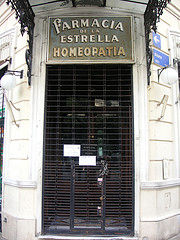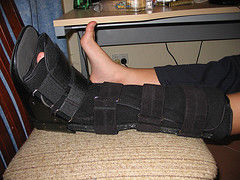
The term holistic seems to be a trendy word these days. Google reveals holistic doctors, holistic dentists, holistic veterinarians, and even holistic pet food being advertised. Well I have some issue with the way this term has been stretched as of late, because it seems more often than not what is marketed as holistic is actually far from it. For this post I’ve decided to take a more in-depth look at the word holistic, what it really means, and how to see through false advertising.
Firstly let’s define holistic: “relating to or concerned with wholes or with complete systems rather than with the analysis of, treatment of, or dissection into parts” says the dictionary. Rather than focusing on any one thing in particular, a holistic professional takes a look at the body in its entirety. The best example of holism can be seen in naturopathic studies. When a person goes to see a naturopath, typically the doctor takes a step back and looks at the person, rather than any one disease. An allopathic model treats the disease and the symptoms; a naturopathic model treats the person with the disease.
If you were to break your foot, you would make an appointment with your orthopedist and have them set that foot, do surgery if warranted, and put your foot back to what it was before. You wouldn’t go to a naturopathic doctor to fix a broken foot. You would, however, go to a naturopathic minded doctor to help address the rest of your body while you are healing from the broken foot, and perhaps go further to visit a chiropractor to address any underlying musculoskeletal instability that could’ve led to an increased likelihood of your foot breaking. You’d also make sure you’re getting the right amount of vitamins and minerals in your body so that your bone density is within normal range so you are not prone to breakage. You may also visit a physical therapist to address the musculature around that injured joint so it may be strengthened to support healing and also stabilize. This in its entirety is a holistic approach to a broken foot.

Now let’s say you broke your foot and decided to go to a “holistic” orthopedist. You have done some research and found a doctor you think will be a one-stop shop and take care of everything you may need. You get radiographs taken of that foot and indeed it is broken, the doctor sets you up with a nice brace or cast, gives you a shot of an anti-inflammatory, sends you home with some pain medication and while you are checking out recommends you take some vitamin D to help with bone density and suggests you invest in shoe inserts to help stabilize a hip imbalance. Though a valid attempt, this is not a holistic approach. Had this orthopedist instead recommended a physical therapist, a chiropractor, and a naturopath, it might be a different story.
The same can be said for veterinarians. After adopting my latest addition I was determined to find a holistic vet for his lifetime. I wanted to avoid putting chemicals unnecessarily into his body and give him the most natural life possible. The search began and I was surprised at how many “holistic” veterinarians were around, it was exciting! The excitement quickly faded, however, as the further I researched the more I realized the majority weren’t of a holistic frame of mind at all. In fact most were quite the opposite. The tabs regarding preventative care didn’t involve herbs, essential oils, homeopathy, chiropractic, and acupuncture. Instead they were riddled with dentals, heartworm medication, flea and tick medication, yearly vaccinations, etc. Apparently my definition of preventative care is quite different than the allopathic model. In addition there would be tabs boasting acupuncture and occasionally supplementation. I guess that’s all one needs in a practice to be considered holistic anymore.
What you must understand is that I am not in opposition to traditional veterinary medicine, it is warranted often and some of my closest friends are in the field. I support them in everything they do and work as an adjunct to their care. My problem is the false advertising. I use certain veterinarians for traditional care and another for holistic care, but the two are not one in the same.
Lastly I’d like to address the term “holistic” as it concerns pet food. What you need to know is that these companies are smart, and do their research as to what sells. As an animal lover, I want the best for my fur children and will of course spend the extra money to get them “holistic” food. Well what does that actually entail other than a prettier bag and fancier writing? After looking into it, it seems that for the majority that’s where it stops. The term holistic as it applies to pet food legally means nothing (1)…WHAT? So I’ve been had? Yes. That’s exactly what has happened. The pretty bag and the fancy writing sucked me in, rather than the quality of the ingredients. That’s not to say that all pet foods boasting holistic are bad, in fact some are of great quality, without corn or grain, and with only the best of the best ingredients that address all the nutritional needs of the body. Most, however, are no better than the dollar store pet food with the not-so-fancy bag and the less script-like handwriting.
My advice to all animal food purchases is to do your research. Read the ingredients. Read about the company you are supporting. Knowledge is power in this industry and it’s easy to be sucked in to the wrong kind of materials. Do what’s best for your pet by reading the label and making an educated decision rather than blindly following any herd, and don’t be afraid to go your own way.
Sources:
1) http://www.feedyourpets.com/what-does-holistic-mean/
Photo Credits:
cough mixture ingredients via photopin (license)
Locked door in the grate via photopin (license)
Mr13 broken foot via photopin (license)

